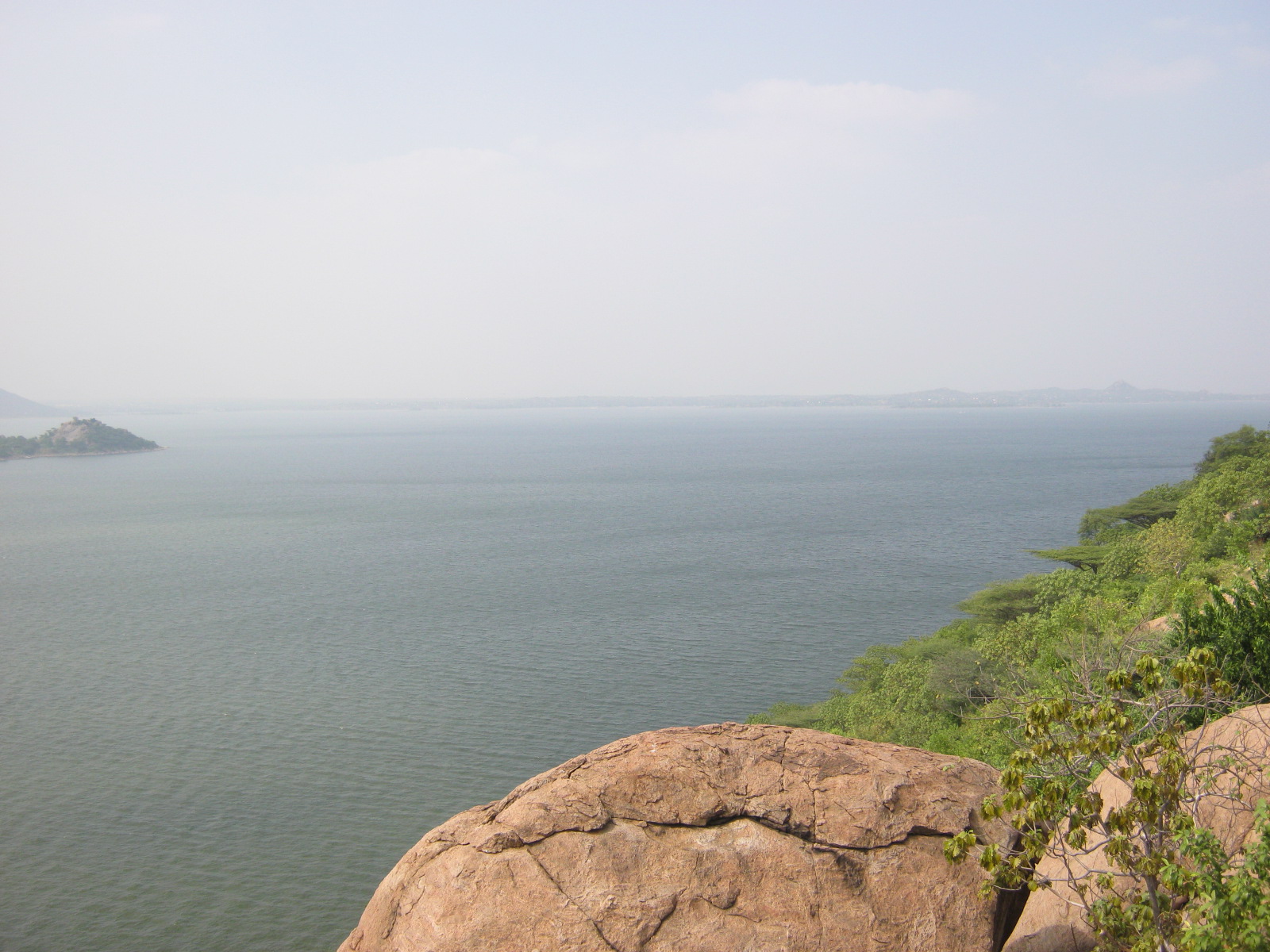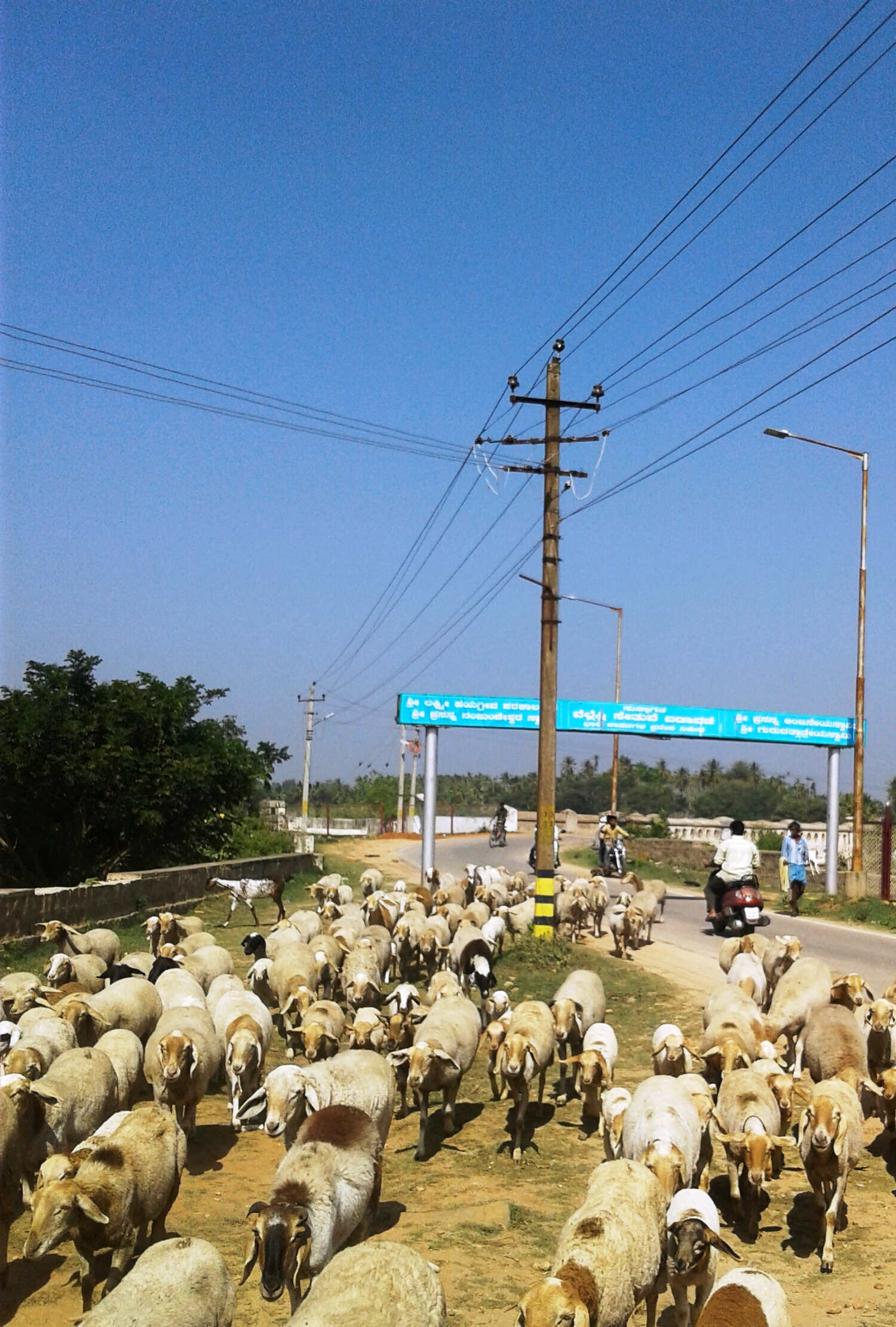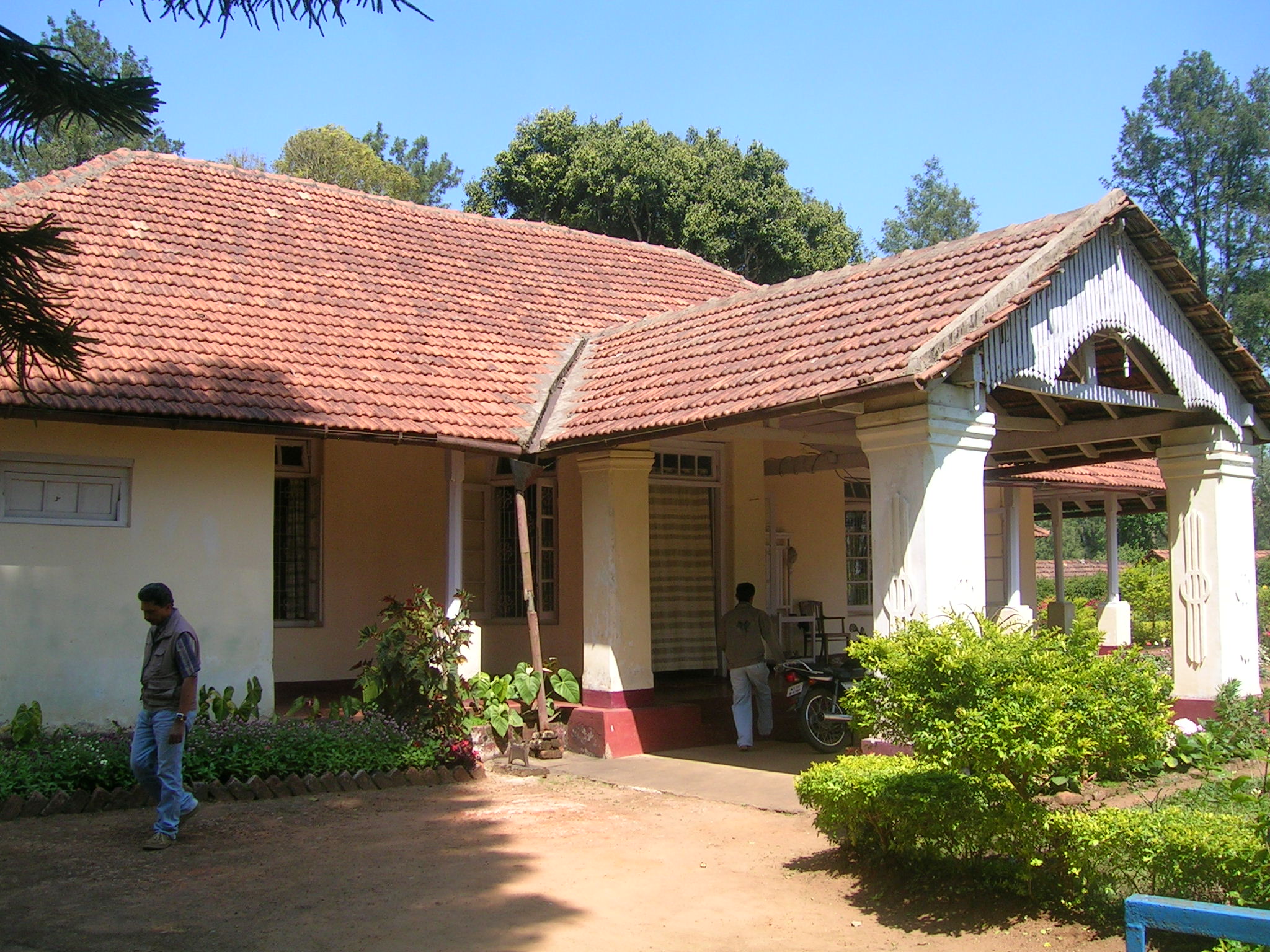|
River Cauvery
The Kaveri (also known as Cauvery, the anglicized name) is one of the major Indian rivers flowing through the states of Karnataka and Tamil Nadu. The Kaveri river rises at Talakaveri in the Brahmagiri range in the Western Ghats, Kodagu district of the state of Karnataka, at an elevation of 1,341 m above mean sea level and flows for about 800 km before its outfall into the Bay of Bengal. It reaches the sea in Poompuhar in Mayiladuthurai district. It is the third largest river after Godavari and Krishna in southern India, and the largest in the State of Tamil Nadu, which, on its course, bisects the state into north and south. In ancient Tamil literature, the river was also called Ponni (the golden maid, in reference to the fine silt it deposits). The Kaveri is a sacred river to the people of South India and is worshipped as the Goddess Kaveriamma (Mother Cauvery). It is considered to be among the seven holy rivers of India. It is extensively used for agriculture in bo ... [...More Info...] [...Related Items...] OR: [Wikipedia] [Google] [Baidu] |
Srirangapatna
Srirangapatna is a town and headquarters of one of the seven Tehsil, Taluks of Mandya district, in the Indian States and territories of India, State of Karnataka. It gets its name from the Ranganathaswamy Temple, Srirangapatna, Ranganthaswamy temple consecrated at around 984 CE. Later, under the British rule the city was renamed to Seringapatnam. Located near the city of Mandya, it is of religious, cultural and historic importance. The monuments on the island town of Srirangapatna have been nominated as a UNESCO World Heritage Site, and the application is pending on the tentative list of UNESCO. History Srirangapatna has since time immemorial been an urban center and place of pilgrimage. During the Vijayanagar empire, it became the seat of a major viceroyalty, from where several nearby vassal states of the empire, such as Mysore and Talakad, were overseen. When perceiving the decline of the Vijayanagar empire, the rulers of Mysore ventured to assert independence, Srirangapatn ... [...More Info...] [...Related Items...] OR: [Wikipedia] [Google] [Baidu] |
Lakshmana Tirtha
The Lakshmana Tirtha (Lakshmantīrtha River) is a river of Karnataka, India., United States National Geospatial-Intelligence Agency It rises in Kodagu district and flows eastward. It joins the Kaveri in the Krishna Raja Sagara lake. The river originates at a height of 1450 metres in the Brahmagiri range of Kodagu district. Unlike Kaveri, Lakshmana Tirtha flows in relatively flat-terrain region of south coorg. Increase in the water level during monsoon, results in flooding of adjacent paddy fields. The river meanders throughout its course and enters Mysore district through Nagarahole National Park. Hunsur is located on the banks of this river and is the source of drinking water for the people of Hunsur. The river finally meets Kaveri at Krishna Raja Sagara reservoir at an elevation of 750 metres above MSL, after traversing a length of about 210 kilometres. Threats * The river generally runs dry few months after monsoon, due to ground water depletion and its constant exposure to ... [...More Info...] [...Related Items...] OR: [Wikipedia] [Google] [Baidu] |
Godavari River
The Godavari (IAST: ''Godāvarī'' �od̪aːʋəɾiː is India's second longest river after the Ganga river and drains into the third largest basin in India, covering about 10% of India's total geographical area. Its source is in Trimbakeshwar, Nashik, Maharashtra. It flows east for , draining the states of Maharashtra (48.6%), Telangana (18.8%), Andhra Pradesh (4.5%), Chhattisgarh (10.9%) and Odisha (5.7%). The river ultimately empties into the Bay of Bengal through an extensive network of tributaries. Measuring up to , it forms one of the largest river basins in the Indian subcontinent, with only the Ganga and Indus rivers having a larger drainage basin. In terms of length, catchment area and discharge, the Godavari is the largest in peninsular India, and had been dubbed as the Dakshina Ganga (Ganges of the South). The river has been revered in Hindu scriptures for many millennia and continues to harbour and nourish a rich cultural heritage. In the past few decades, the riv ... [...More Info...] [...Related Items...] OR: [Wikipedia] [Google] [Baidu] |
Mayiladuthurai District
Mayiladuthurai district is one of the 38 List of districts of Tamil Nadu, districts of the state of Tamil Nadu in India. The district headquarters is located at Mayiladuthurai. Geography The district is bounded on the north by Cuddalore district, on the west by Thanjavur district, on the south by Tiruvarur district and Karaikal district of Puducherry (union territory), Puducherry, and the Bay of Bengal to the east. The district is situated in the fertile delta of the Kaveri and is entirely flat plain. The Kaveri, as well as many of its distributaries, flows through the district and enters the sea here. Most of the northern border with Cuddalore is formed by the Kollidam River. Taluks As of 2020, when Mayiladuthurai District was carved out of Nagapattinam it had the following taluks: *Kuthalam taluk *Mayiladuthurai taluk *Sirkazhi taluk *Tharangambadi taluk Demographics At the time of the 2011 census, Mayiladuthurai district had a population of 918,356. 741,788 lived ... [...More Info...] [...Related Items...] OR: [Wikipedia] [Google] [Baidu] |
Puhar, Mayiladuthurai
Puhar (also known as Poompuhar) is a town in the Mayiladuthurai district in the southern Indian state of Tamil Nadu. It was once a flourishing ancient port city known as Kaveri Poompattinam, which is described in Sangam literature like Silappadikaram, Manimekalai, Pattinapalai and Akananuru as the capital of the Early Chola kings in Tamilakam. Puhar is located near the mouth of the Kaveri river, on the sea coast. It is mentioned in the Periplus of the Erythraean Sea. It has now been established by marine archaeological research (conducted by the National institute of marine archaeology, Goa) that much of the town was washed away by progressive erosion and floods. In the 1960s and 1970s, archaeological research was conducted under the leadership of the noted archaeologist K. V. Soundararajan. Submerged wharves and several meter lengths of pier walls excavated in recent times have corroborated the literary references to Poompuhar. It was rebuilt several times after that. Ancient ... [...More Info...] [...Related Items...] OR: [Wikipedia] [Google] [Baidu] |
Kodagu District
Kodagu (also known by its former name Coorg) is an administrative district in the Karnataka state of India. Before 1956, it was an administratively separate Coorg State, at which point it was merged into an enlarged Mysore State. It occupies an area of in the Western Ghats of southwestern Karnataka. In 2001 its population was 548,561, 13.74% of which resided in the district's urban centre, making it the least populous of the 31 districts in Karnataka. The nearest railway stations are Mysore Junction, located around away, Thalassery, and Kannur, the latter two located in Kerala at a distance of about . The nearest airports are Kannur International Airport in Kerala ( from Madikeri) and Mangalore International Airport ( from Madikeri). Geography Kodagu is located on the eastern slopes of the Western Ghats. It has a geographical area of . The district is bordered by Dakshina Kannada district to the northwest, Hassan district to the north, Mysore district to the east, Kasa ... [...More Info...] [...Related Items...] OR: [Wikipedia] [Google] [Baidu] |
Brahmagiri (hill), Karnataka
Brahmagiri, is a mountain range in the Western Ghats of south India. It is situated on the border between Kodagu district in Karnataka state in the north and Wayanad district of Kerala state on the south . Brahmagiri Hill, at 1608 m height, is a scenic tourist attraction. The top of Brahmagiri Hill is well forested and has much wildlife. Tourist attractions Thirunelli Temple, dedicated to Lord Vishnu, lies on the Kerala side of Brahmagiri. This temple is known as Dakshina Kasi or the Kashi of the South. The temple was constructed in an ancient style and includes 30 granite pillars. According to legend, the temple was constructed by Lord Brahma himself. Pakshipathalam at an altitude of 1740 m is another attraction on the Kerala side. Pakshipathalam has a cave that is said to have been used by rishis in ancient times. On the Karnataka side it is also known by the name of Munikal cave. Iruppu (or Irpu or Lakshmana Tirtha) Falls of the Lakshmana Tirtha River lies on the ... [...More Info...] [...Related Items...] OR: [Wikipedia] [Google] [Baidu] |
Anglicized
Anglicisation is the process by which a place or person becomes influenced by English culture or British culture, or a process of cultural and/or linguistic change in which something non-English becomes English. It can also refer to the influence of English culture and business on other countries outside England or the United Kingdom, including their media, cuisine, popular culture, technology, business practices, laws, or political systems. Linguistic anglicisation is the practice of modifying foreign words, names, and phrases to make them easier to spell, pronounce or understand in English. The term commonly refers to the respelling of foreign words, often to a more drastic degree than that implied in, for example, romanisation. One instance is the word "dandelion", modified from the French ''dent-de-lion'' ("lion's tooth", a reference to the plant's sharply indented leaves). The term can also refer to phonological adaptation without spelling change: ''spaghetti'', for example ... [...More Info...] [...Related Items...] OR: [Wikipedia] [Google] [Baidu] |
Kaveri Basin Map
The Kaveri (also known as Cauvery, the anglicized name) is one of the major Indian rivers flowing through the states of Karnataka and Tamil Nadu. The Kaveri river rises at Talakaveri in the Brahmagiri range in the Western Ghats, Kodagu district of the state of Karnataka, at an elevation of 1,341 m above mean sea level and flows for about 800 km before its outfall into the Bay of Bengal. It reaches the sea in Poompuhar in Mayiladuthurai district. It is the third largest river after Godavari and Krishna in southern India, and the largest in the State of Tamil Nadu, which, on its course, bisects the state into north and south. In ancient Tamil literature, the river was also called Ponni (the golden maid, in reference to the fine silt it deposits). The Kaveri is a sacred river to the people of South India and is worshipped as the Goddess Kaveriamma (Mother Cauvery). It is considered to be among the seven holy rivers of India. It is extensively used for agriculture in bo ... [...More Info...] [...Related Items...] OR: [Wikipedia] [Google] [Baidu] |
Moyar River
The Mayar River is one of the tributaries of the Bhavani in Tamil Nadu, South India. The Mayar river originates from a small town called Mayar off the Masinagudi–Ooty road. This is a natural line of separation between the state of Karnataka and Tamil Nadu and a separation between the forest of Bandipur National Park and the Mudumalai sanctuary to the south. The Mayar River Gorge is long and is also called the Mayar Canyon. The river flows into the gorge below Theppakadu in a roaring waterfall called Mayar Falls. Thiriveris checked by Bhavanisagar Dam on the plains near Satyamangalam Sathyamangalam (also known as Sathy) is a town and municipality in Erode district in the Indian state of Tamil Nadu. 8 th century Town. It lies on the banks of the River Bhavani, a tributary of the River Cauvery in the foothills of the West ..., along with the Bhavani River. References Rivers of Tamil Nadu Tributaries of the Kaveri River Rivers of India {{India-river-stub ... [...More Info...] [...Related Items...] OR: [Wikipedia] [Google] [Baidu] |
Amaravati River
The Amaravati River is the longest tributary of Kaveri River in the fertile districts of Udumalpet, Dharapuram and Karur Tamil Nadu state, South India. Notes The long Amaravati River begins at the Kerala/Tamil Nadu border at the bottom of Manjampatti Valley between the Anaimalai Hills and the Palni Hills in Indira Gandhi Wildlife Sanctuary and National Park in Tirupur district. It descends in a northerly direction through Amaravathi Reservoir and Amaravathi Dam at Amaravathinagar. It is joined by the Kallapuram River at the mouth of the Ajanda valley in Udumalaipettai. Through Dharapuram and Aravakurichi it joins with the Kaveri at Thirumukkudal, about from Karur. Nanganji, Kudavanar, Shanmuga nadhi, Uppar, Kudumiar, Thenar and so many tributaries are joint with the Amravati river. It has the Tributary of the Pambar and Chinnar rivers from Kerala also. Use This river irrigates over of agricultural lands in Tiruppur and Karur districts. The Amaravathi Dam has 4 meg ... [...More Info...] [...Related Items...] OR: [Wikipedia] [Google] [Baidu] |





